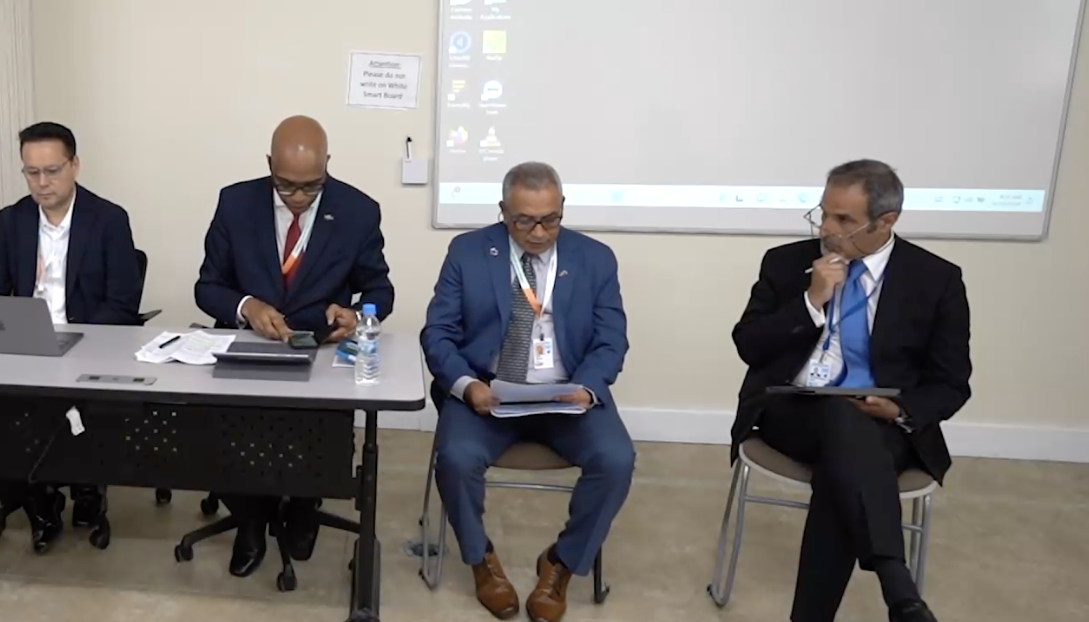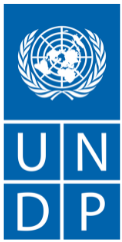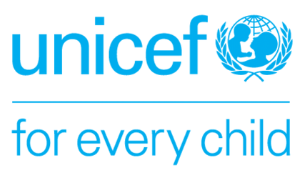H.E. Mr. Orlando Habet, Minister of Sustainable Development and Climate Change, Belize joined the 4th Small Island Developing Sates (SIDS4) Conference Side Event: Unlocking NDC Finance in SIDS through Integrated National Financing Frameworks that was held in St. Johns, Antigua and Barbuda on Wednesday 29 May 2024.
The Minister highlighted the efforts by Belize to bridge the financing gap for its development and climate goals through their INFF. The government has stabilized its macroeconomic position, innovating in debt management, and increasing private sector engagement. Their INFF will align its medium-term development plan and NDCs, integrating various financial strategies such as SDG tagging, carbon market readiness, and public-private partnerships. This approach aims to foster sustainable growth and resilience by attracting international capital and optimizing national financial resources.
The full transcript of the speech is attached below:
It's a pleasure to join you this morning to share the experience and plannings from Belize. Similarly, we have done some assessments last year with the SDG dialogue, and this year we are now accomplishing, hopefully, very soon, our VNR (Voluntary National Review) for submission.
We see also the implementation of the NDCs, needing additional financing for implementation. The issue of how we finance our development, mitigation and adaptation priorities is a crucial one, a question that is at the forefront of policy discussions across the Government of Belize. Belize is a country built on its natural assets.
And as we seek to further our economic development, we recognize the need to do so in a way that builds on these assets, not distinguishing between climate and development, but progressing sustainably in a way that builds resilience. Plan Belize, our medium development strategy, sets out six sector strategies and plans of action across poverty reduction, economic transformation, trade, environmental protection, security, and governance.
Our climate objectives are set out in our NDCs. We increased ambition by 5% in our current NDCs with a focus on investment in avoidance sectors including power, livestock, and transport. Adaptation objectives consider the waste, energy, and industrial sectors alongside important targets in biodiversity and other aspects of environmental priorities. The financing landscape within which we can advance these priorities presents both challenges and also of opportunities.
The scale of financing needs are significant. The financing gap for our current NDC is around $1.7 billion, and for the medium-term development strategy, around $7 billion. As a small country, with total government revenues of a little over US$700 million last year. This is significantly more than can be mobilized through public finance alone. And an economy driven by the private sector must engage and mobilize private and international capital.
The country has worked hard to bring our macroeconomic and fiscal position to stability. Yet we must continue to manage our fiscal position prudently, meaning there are limited options for fiscal expansion and an emphasis on effective spending and creating the conditions for incentives for inclusive and sustainable growth.
The private sector is mixed. FDI (Foreign Direct Investment) has risen 40% since 2019, and we have seen growth in important sectors such as the BPO. Dependence on tourism, equivalent to 40 to 45% of GDP, is high, and there is dependence on imported goods. There is still much to do in terms of unlocking private growth that advances development sustainably at scale. The latest data show that only 3% of private finance is from the private sector. Within this context, we have been advancing innovation in a number of areas of financing on which we can build further.
In the Ministry of Sustainable Development and Climate Change, we established a program, BioFin, in Biodiversity Financing in 2016. At the same time, in 2021, we put in place a climate financing strategy. This set out seven corss cutting strategic directions for climate finance.
These have helped to advance a number of important reforms. A dedicated national National Biodiversity Office was set up in my Ministry of Sustainable Development, which was a spin-off from the Forest Department to take care, specifically and almost solely, for national crops, and is advancing a number of initiatives at system-level changes to strengthen financing for biodiversity. I already mentioned the Blue Bond Debt for nature Swap. This is generating $4 million a year in support of Marine protection tripling Belize’s budget for Ocean conservation over two decades.
We have put in place a business planning and investment framework for protected areas, designed a biodiversity investment and impact tracking tool, and are taking forward work in areas including carbon markets, results-based management, and crowdfunding. We are now at the mid-term state in our finance financing strategy. As the government, we felt that coming out of COVID with a new medium -term development plan in place since last year, and a revised NDC coming next year, this is an important moment to take stock on financing and for the implementation of these agendas, building on the experience that we now have. This is where the Integrated National Financing Framework, the INFF, comes in. Since the beginning of this year, we have been exploring how to adopt a Belizean Integrated National Financing Framework.
The objectives that an INFF for Belize would strengthen our National Framework for financing the medium-term development plan and NDC alongside priorities in areas such as social protection through the operationalization of a single integrated financing strategy. An integrated financing strategy will explore, shape, and advance reforms across public and private finance, from private and SDG tagging, carbon market readiness, and vertical fund accreditation to PPPs, bond framework development, pipeline building, business climate roundtable, and commercial management of environmental risks within a whole of government and all of society approach.
We have initiated the process to develop our INFF, beginning with a workshop in the first quarter of this year, co-convened by three ministries, my own, alongside the Ministry of Finance, Economic Development and Investment, and the Ministry of Foreign Affairs and Foreign Trade, with the support of the UNRC, UNDP, and the INFF facility.
Learning from other countries is an important element of our process. The Government of Maldives shared lessons from their own INFF during our inaugurate workshop, and I'm grateful to the Government of Seychelles for convening the discussion today and the experiences that they and others on the panel have shared. We have much to learn from one another. In Belize, the INFF is a live discussion at the moment, and there is an active conversation among the cabinet on how to configure the INFF approach strategy and institutional setup.
As we move forward, we see that if we can integrate and if we can align our financing priorities into a strategic INFF approach that mainstream development, resilience, and environmental objectives into the financing architecture and the financing instruments that we use, then this will drive the economic, sustainable, and resilient development that we want to see as a nation.
Thank you.

















